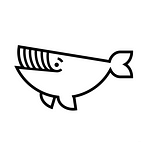4 Years Old
A short list of some lessons learned in four years of sober living.
- I can either care about being right or being happy. It’s a choice. I would rather be happy.
- They’re not thinking about you. If you’re worried about what someone is thinking about you, take it from me, they probably aren’t. You’re not that big of a deal.
- Control hurts. The suffering I experience is directly related to the amount of control I try to have. When I let go of expectations, I’m free to see each moment as another new experience. An opportunity rather than a shitty situation. This is not something I’ve learned, this is something I am always learning. But I’m better at it today than I was four years ago. 🎉
- It’s ok to be where I am. I really want to have a new personal website up to write this on, but shipping a little note here is better than the ideal thing sitting in my head and making me feel sub-par. It’s ok to be a work in progress. It’s ok to be right here.
- Healing takes time. Not drinking was the linchpin, but the real work is now emotional sobriety. Apparently all the cells in my body have been completely replaced in the last four years and so I’m literally a new person, but choosing sanity over frustration, and acceptance over annoyance is a long game.
- Life happens—roll with it. It’s been said that “you can only control your reaction to things, and nothing else”. I can only barely do that, and not all the time. Our brains are programmed with some hardwiring and some soft code. Thanks to neuroplasticity we can do some changing, but that shit ain't easy. Life might not get better, but I might. I’m becoming more curious about each twist and turn, and adjusting to having fewer and fewer expectations—and so my peace increases.
- People don’t change till they’re ready. I wasn’t ready to change till it hurt too much not to. I’m not going to lose my serenity over someone else’s insanity or ridiculous opinions or problems. I can sometimes be the best friend to someone by letting them find their own “bottom” instead of trying to solve it for them. Usually the best thing I can do if someone asks is to share my experience, strength, and hope. Otherwise listening is the best tool in the box. Less mouth more ears.
- “Me too” is enough. Sometimes the best two words in recovery are “me too”. Just knowing that others are going through or have gone through what I’m feeling creates the community I need to make it through something hard. I know I can be that for others too.
- Binaries don’t work for me anymore. It turns out that I had to lose it all to understand what I had, and what I can have. It turns out Covid made way for my girlfriend to be able to work remotely (🤞🏽). I lost a humungous contract this year that taught me a ton about the role that money plays in a feeling of safety in my life. I don't know what’s good for me or others, so I’ve given up trying to evaluate everything and sort it into good and bad. Everything can be a love note from the universe if I’m open to it.
Today I am running two companies, connected with the most amazing woman I can imagine (who’s moving to live with me in South Carolina), raising up three witty kids with brave and soft hearts and clear minds, and co-parenting like a pro with my ex who is becoming a friend. I’m also working through depression, worried about money, and overwhelmed by the difficulties our country and world are facing. I’m grateful for all of it.
I wouldn’t give up any part of this story. Every moment has lead me here. Thanks for being part of it.
Matthew
